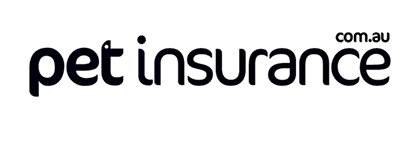Vet bills: what are some of my options to pay for treatment costs?

A trip to the vet can be emotional for both you and your fur baby, but have you considered the financial impact of a vet visit and how you’d pay for a large and unexpected vet bill?
In this article, we review two examples of average treatment costs for common pet health mishaps and some of the different payment options available to you as a pet parent.
Average treatment costs for common pet mishaps
Let’s take a common health condition for a cat and a dog, and look up the treatment cost based on claims data# from Petsure (the brand behind petinsurance.com.au).
If you had a three-year-old Ragdoll cat with feline lower urinary tract disease, the average annual expense for treatment would be $1,482.#.
As a second example, if you had a three-year-old Cavoodle with a gastrointestinal tract infection and an allergic skin condition, the average annual average cost of treatment for these conditions would be around $2,169#.
So what are some options to cover vet care costs?
Based on the two scenarios above and the average treatment costs, below we explore some options to cover the treatment expenses.
- Pet insurance
Pet insurance is one option that can help minimise some of the pressure on your wallet if your fur baby gets unexpectedly sick or injured. Many petinsurance.com.au policies pay up to 80% of eligible vet costs up to $30,000 or more each year%.
Below is an example of what you might expect to pay for an annual pet insurance premium, with a petinsurance.com.au policy.
Ragdoll: if you signed up for a comprehensive accident & illness cover policy* at the start of the year, your premium would be $27.88 per month or $334.56 for the year*.
For an eligible condition, a petinsurance.com.au policy would reimburse up to 80% of the treatment cost, so for your Ragdoll’s urinary tract disease (average cost of $1,482), you’d fork out around $296.40. Adding your out-of-pocket cost with your annual pet insurance premium, the total cost would be $630.96.
Cavoodle: if you took out the same petinsurance.com.au comprehensive accident & illness cover policy** for the Cavoodle at the start of the year, you’d pay $41.77 each month or $501.24 for the year**.
The treatment cost for the Cavoodle’s gastrointestinal tract infection (at an average cost of $2,169) would see you pay around $433.80 where your pet insurance policy covered up to 80% of the cost. Add this out-of-pocket cost with your annual premium and your total expense would be $935.04.
Claiming on the spot with GapOnly® means you’d simply pay the gap^ while you’re still at the vet clinic, helping you reduce your upfront out-of-pocket expense.
There are other options you could use to cover the vet expense of $1,482 for your Ragdoll’s treatment or $2,169 – we explain some of these options below.
- Paying with a credit card
A credit card allows you to make a purchase using money borrowed from the bank.
The Reserve Bank of Australia (RBA) says the annual interest rate for a credit card is 17.93%##. Some banks or credit providers also charge fees like annual fees or late fees for credit card products, but for this example we’ll just show the monthly repayment calculations below.
Ragdoll:
To repay $1,482 at 17.93% interest##, if you made a higher monthly repayment of $135, you’d pay $1,605 over a year. We punched the numbers for this calculation using the Moneysmart.gov.au credit card calculator^^.
Cavoodle:
To repay the $2,169 at a 17.93% interest rate, if you made a higher monthly of $210 per month, you’d fork out $2,335 over a year^^, and keep in mind – this doesn’t include any fees that may be charged by the bank.
- A personal loan
A personal loan (What Is A Personal Loan? Types Of Personal Loans | Canstar) allows you to borrow money and repay the balance with interest over the agreed loan period. According to the RBA, the average rate in August this year was 7.80%~.
Again, using the Moneysmart.gov.au personal loan repayment calculator we’ve estimated the personal loan repayments below.
Ragdoll:
To repay the $1,482 over a year, the monthly repayment at 7.8% interest would be $129, so an annual cost of around $1,545 ^^^.
Cavoodle:
To borrow $2,169 over a year at 7.8% interest, the monthly repayment would amount to $188, so a total repayment cost of around $2,262^^^.
There may be additional application fees for a personal loan, which have not been included in the above calculations.
- Using your savings
So how about a savings account? A savings account could be a good addition or alternative to pet insurance if you make regular contributions, but keep in mind it takes time to grow a decent amount of savings.
While you may set out to dedicate your savings account to costs for your fur baby, the reality is other daily expenses will crop up and it may be tempting to use your savings for these costs like rent, dining out or even travel costs.
When it comes to paying for veterinary treatment for your fur baby, there are different ways you can manage the payment. Just remember that being financially prepared, and having a plan in place, is key to ensuring that you’re prepared if things don’t go according to plan.
References:
*Based on a 32-year-old pet owner living in postcode 2099 with cover provided by PetSure’s direct brand petinsurance.com.au (Best in Show: Gold Cover) with a $250 excess. The quote generated was for a desexed three-year old female Ragdoll on 15 November 2023. These quotes are examples only. Actual prices and coverage will vary. You should consider the Product Disclosure Statement to determine which products are appropriate for you.
** Based on a 32-year-old pet owner living in postcode 2099 with cover provided by PetSure’s direct brand petinsurance.com.au (Best in Show: Gold Cover) with a $250 excess. The quote generated was for a desexed three-year old female Cavoodle on 15 November 2023. These quotes are examples only. Actual prices and coverage will vary. You should consider the Product Disclosure Statement to determine which products are appropriate for you.
^The gap means the difference between the vet’s invoice and the eligible claim benefit under your policy.
% Up to $30,000 reimbursed on eligible vet bills each year on Best in Show Platinum cover^
# Financial year 2023 PetSure data. Average annual cost reflects the average cost across all vet visits.
## According to RBA data, the average credit card interest rate is 17.93% for the month ending August – https://www.rba.gov.au/statistics/tables/
^^Calculated using the MoneySmart credit card calculator:
https://moneysmart.gov.au/credit-cards/credit-card-calculator
^^^ Calculated using the MoneySmart personal loan calculator:
https://moneysmart.gov.au/loans/personal-loan-calculator
~ Reserve Bank of Australia, personal lending rates –
total lending rates, personal credit, outstanding, fixed-term loans, August 2023
+ According to Qrillpet.com.
